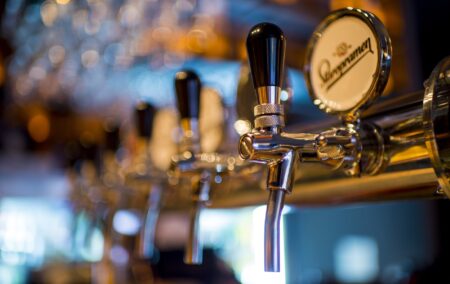Before President Cyril Ramaphosa’s speech on Monday night the Liquor Traders Formations called on government to rather work with the sector in finding solutions to support government measures to prevent the spread whilst ultimately saving the thousands of jobs in this sector. In 2015 it was estimated that the industry directly accounted for approximately 90 000 jobs with more than 500 000 employment opportunities which could be directly or indirectly traced back to the production and sale of liquor.
Unions had been among those to ask the government for tougher restrictions on alcohol. The Democratic Nursing Organisation of South Africa (Denosa) asked for tougher restrictions to help alleviate the pressure on workers who are said to be fatigued and depressed.
However, the alcohol sector expressed deep concern that more stringent restrictions may deal a devastating blow to already struggling outlets. “We feel that a total ban on the liquor industry is not going to be sustainable for us and we’re also trying to recover from the previous lockdown,” said Lucky Ntimane, convener of the Liquor Traders Formations.
On Monday night President Ramaphosa acknowledged, “The liquor industry is a major employer and an important contributor to our economy” but announced the following restrictions:
- The sale of alcohol from retail outlets and the on-site consumption of alcohol will not be permitted;
- The prohibition on consuming alcohol in public spaces like parks and beaches remains; and
- Distribution and transportation will be prohibited with certain exceptions.
Ramaphosa announced, “On the recommendation of the National Coronavirus Command Council, and after consultation with provinces and metro mayors, Cabinet has decided to put the country on an adjusted Level 3 from Level 1 with immediate effect. Several of the level 3 regulations are being strengthened to further limit the potential for transmission, while doing everything possible to keep the economy open.”
Other restrictions under level 3 include:
- All indoor and outdoor gatherings will be prohibited for 14 days except for funerals and other limited exceptions as detailed in the regulations, such as restaurants, museums, gyms and casinos;
- Funerals may not be attended by more than 50 people with social distancing;
- Every business premises must determine the maximum number of staff and customers permitted at any one time based on our social-distancing guidelines and may not exceed that limit;
- The nationwide curfew will be extended from 9pm to 6am; and
- Non-essential establishments – including shops, restaurants, bars and all cultural venues – must close at 8pm.
It was also announced that “A person who does not wear a mask could be arrested and prosecuted. On conviction, they will be liable to a fine or to imprisonment for a period not exceeding six months or to both a fine and imprisonment.” All beaches, dams, lakes, rivers, public parks and public swimming pools in hotspot areas would also be closed to the public.
President Ramaphosa also announced that South Africa has signed off on the agreement with Covid-19 Vaccines Global Access Facility (COVAX) and the Solidarity Fund has made the initial payment of R283 million to the facility saying, “We should remember that the Solidarity Fund is a multisectoral funded initiative having received funding from government, a number of individual South Africans, various institutions including political parties as well as business corporations.”

